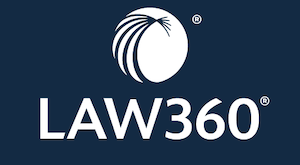Financial markets have been pinning their hopes on a Conservative victory ever since the General Election was announced in late October.
But even the most optimistic of City brokers did not expect Boris Johnson to romp home with the biggest Tory majority in more than 30 years. Their response? Exuberance, mixed with more than a dash of relief.
The pound soared against the dollar and euro on Friday, while domestically focused shares instantly got a lift, as big investors took the view that the UK is now set for a period of greater stability and stronger economic growth.
Banks, which have been clobbered since the EU referendum result, could be a safe investment
The Corbyn risk has been well and truly neutered too, and that is particularly good news for companies threatened with nationalisation, such as the water utilities, BT and Royal Mail.
All of those shares rose at the end of last week, but several, such as Severn Trent and Pennon, still offer long-term potential and decent income.
Elsewhere, the Tory victory should provide lots of opportunities to pick rewarding stocks. Many UK shares have become comparatively cheap over the past three years, hit by uncertainty about the direction of UK politics, worries over the outlook for business and fears of a Corbyn-led government.
Company managers have been nervous too. They have been scaling back on investment, preferring to concentrate on reducing costs and becoming more efficient.
Now they may start to feel more optimistic, investing in the future and focusing on growth.
Looking ahead, certain stocks and sectors stand out, particularly those likely to benefit from a stronger pound, a return of consumer confidence and a government determined to put some oomph back into Britain.
Banks may be a safe investment again
Banks have been clobbered since the EU referendum result. According to research firm Edison Group, the banking sector has lost so much ground in the past three years that the shares have become significantly undervalued.
This partly reflects woes of the sector’s own making, such as the never-ending PPI scandal, which cost banks more than £36billion, and other egregious instances of customer mistreatment.
But banks have suffered from concerns about the state of the economy. When growth is sluggish, businesses and consumers are less inclined to borrow, more debts default and there is less trading and foreign exchange activity.
Very low interest rates can reduce the profit banks make on money lent. A more robust and settled economy should see bank shares in recovery mode – and the signs were there for all to see on Friday, as bank stocks rose across the board.

Secure Trust Bank has been one beneficiary of the Boris bounce, but to put this in context, its shares were £26 shortly before the EU referendum and have fallen steadily afterwards. Yet the bank itself is one of the most sound. Based in Solihull, in the West Midlands, it is smaller than big high street names, but it is profitable, growing fast and it pays a generous dividend.
Run by Paul Lynam, Secure Trust has almost 1.5million customers, whom it offers savings accounts, mortgages and various consumer credit products. It has a strong business division, specialising in loans to small and mid-sized firms.
Secure Trust traditionally focused on offering credit to customers who could not open accounts with bigger banks so Lynam has developed a cautious approach to risk. But the group has branched out in recent years and its internet banking division is expanding fast. Interim figures showed a 31 per cent increase in overall customer numbers, customer satisfaction of between 90 and 95 per cent and double-digit profit growth.
Brokers expect further increases in full-year revenues and profits, alongside a dividend of 86p, putting the stock on a 5 per cent yield.
Looking to 2020, Secure Trust should derive clear gains from increased business investment and a recovery in consumer confidence. At £16.10, the shares are a buy.
Infrastructure could be a solid choice
The Tories have pledged to spend £100billion over five years on infrastructure such as roads, rail and flood defences. The cash is sorely needed and should mean more business for battle-hardened contractors such as Balfour Beatty, as well as specialists such as Hill & Smith.
The latter is a quality operator. It makes a wide range of roadside equipment, from barriers and street lighting to smart motorway signs to alert drivers if conditions are bad or traffic is building up.

The Tories have pledged to spend £100billion over five years on infrastructure such as roads, rail and flood defences
Hill & Smith also makes security equipment, including bollards, wire rope and fences for huge data centres owned by the likes of Google and Amazon. It designs and produces light, super-strong materials used by various industries and specialises in galvanising metals to protect them from corrosion.
Recommended by Midas in 2014, when the shares were at £5.49, it has since soared to £14.87.
The firm has delivered consistent profit growth and raised dividends for the past 16 years, with a 6 per cent rise to 33.7p pencilled in for 2019. As a highly regarded firm, Hill & Smith should certainly benefit from increased spending on outdated infrastructure, and it has a substantial business in the US too.
Investors might also look at HICL, which invests in more than 100 infrastructure projects, including tunnels and bridges, rolling stock for railways, hospitals, schools and utilities.
Floated in 2006 at £1 a share, it is now at £1.69 and should deliver further steady growth.
They had a wobble in early 2018 when contractor Carillion went into liquidation, but the company has raised its dividend every year since flotation and the range of projects it invests in does make the group more resilient than most.
HICL is expected to pay a dividend of just over 8p this year, putting the stock on a yield of almost 5 per cent.
Housebuilders set to move up the ladder
The Tories have said they will build a million new homes over the next parliament and have already extended the Help To Buy scheme to 2023 so more people can afford to get on to the housing ladder.
These two commitments should give housebuilders a big boost, but they are also likely to benefit from stronger economic growth and increased consumer confidence.
Most housebuilders’ shares rose sharply in anticipation of a Tory victory. But that did not stop them enjoying further gains when the result was announced.

The Tories have said they will build a million new homes over the next parliament and have already extended the Help To Buy scheme to 2023 – which should boost housebuilders
Persimmon charged ahead by 12 per cent to £28.16 on Friday alone, while Countryside Properties gained almost 10 per cent to £4.69, meaning the shares have soared 59 per cent over the past year alone. Both could rise further in the months ahead, but other firms may have more potential.
Bellway, for example, has grown steadily over the past five years but looks undervalued compared with larger stocks in the sector.
Founded in Newcastle more than 70 years ago, the company has a solid track record and offers a dividend yield of more than 4 per cent. At £38.31, the shares are weighty but they could show decent gains in 2020.
MJ Gleeson and Inland Homes are worth watching too. Midas recommended low-cost housebuilder Gleeson in 2011 when the shares were £1.09. They had risen to £6.12 by 2017 and today they are £8.60 with brokers predicting further growth next year.
Inland Homes has also had an impressive run recently. Midas tipped the innovative regeneration specialist at 32p in 2013, and again this June when the shares were 66p. They have since climbed to 81p, and, if the Government really does aim to stem the housing crisis, the business should continue to do well.
Possible losers and a safety option
The FTSE 100 is one of the world’s most international indices, with 70 per cent of its profits generated overseas. And when the going gets tough in the UK, investors gravitate to some of the biggest and most international stocks in the index, such as BP and Shell.
Both shares fell in the run-up to the Election and again following the result. Why? Because the more sterling rises, the more these businesses suffer when they bring the cash home. The stocks will probably fall further if sterling continues to appreciate against the dollar. Other shares may suffer too, such as miners Rio Tinto and BHP.
Canny investors put their eggs in lots of baskets and that rule applies as much today as ever. The stock market is in bullish mode but it never hurts to invest in something a little different to protect against any obstacles on the road.
Gold is the ideal hedge, particularly for investors with a long-term horizon, including those keen to pass their assets down to their children and grandchildren.
At £1,102 a troy ounce, gold is not cheap. But it should reward patient investors – and put sparkle in their portfolios.
Some links in this article may be affiliate links. If you click on them we may earn a small commission. That helps us fund This Is Money, and keep it free to use. We do not write articles to promote products. We do not allow any commercial relationship to affect our editorial independence.
Source link


